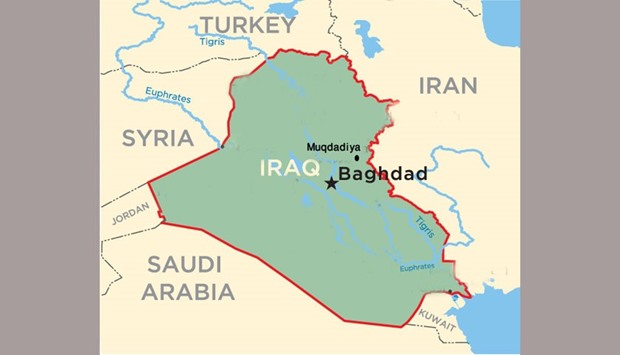The blast in Muqdadiyah, which was hit by revenge attacks on homes and mosques after a January suicide bombing, also wounded at least 40 people, security officials said.
The bombing targeted a funeral for a well-known Shia member of the Beni Tamim, one of the main tribes in Diyala province, where Muqdadiyah is located.
Zaid Ibrahim, the official responsible for the Muqdadiyah area, said a leader in Asaib Ahl al-Haq and a member of Badr -- two powerful Shia militias -- were among those killed in the blast.
There was no immediate claim of responsibility for the attack, but suicide bombings are a tactic almost exclusively employed in Iraq by the Islamic State jihadist group.
The Muqdadiyah attack came a day after bombings in a Shia area of northern Baghdad killed at least 39 people and wounded at least 76, the deadliest attacks in the capital so far this year.
IS, a Sunni extremist group, said in an online statement that two of its suicide bombers carried out the Baghdad attacks.
IS also claimed bombings at a cafe in Muqdadiyah that killed at least 20 people and wounded dozens in January, after which revenge attacks targeted Sunni properties in the area.
Human Rights Watch said Shia militiamen abducted and killed civilians in the Muqdadiyah area after the attack, in addition to burning homes and mosques.
The death of militiamen in the Monday bombing increases the odds of another round of revenge attacks in the area.
Iraq turned to Shia militia forces in 2014 to help counter an IS onslaught that overran large areas north and west of Baghdad, and they have played a key role in halting the jihadist advance and later pushing them back.
But they have also carried out repeated abuses during the conflict that ultimately feed mistrust of the government and are harmful to Baghdad's efforts to reassert and maintain control in recaptured areas.
Diyala province was declared "liberated" from IS in late January 2015, but that has not brought an end to attacks by the jihadists.

